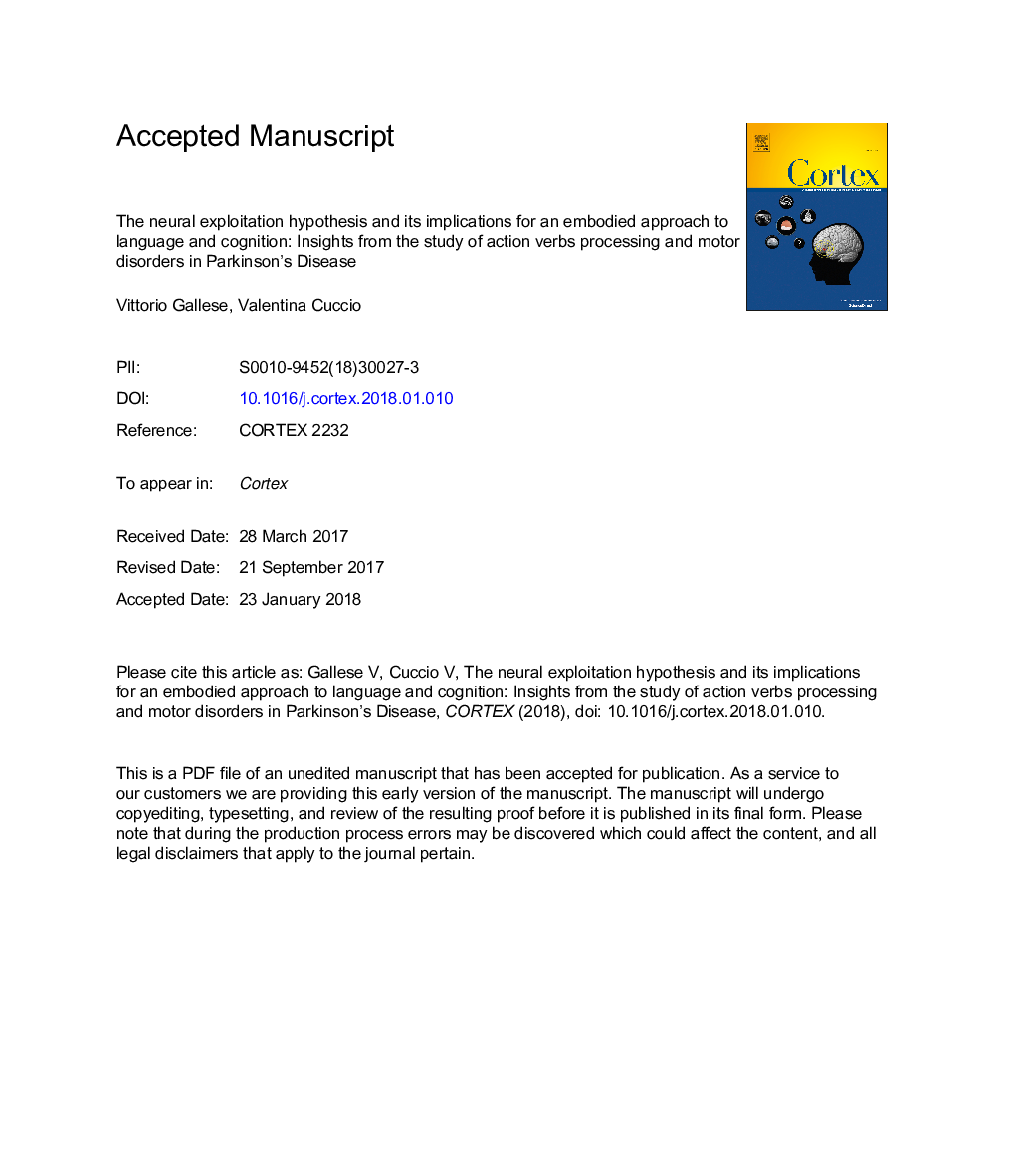| کد مقاله | کد نشریه | سال انتشار | مقاله انگلیسی | نسخه تمام متن |
|---|---|---|---|---|
| 7312036 | 1475432 | 2018 | 16 صفحه PDF | دانلود رایگان |
عنوان انگلیسی مقاله ISI
The neural exploitation hypothesis and its implications for an embodied approach to language and cognition: Insights from the study of action verbs processing and motor disorders in Parkinson's disease
ترجمه فارسی عنوان
فرضیه بهره برداری عصبی و پیامدهای آن برای یک رویکرد مفهومی به زبان و شناخت: بینش از مطالعه پردازش فعل عمل و اختلالات حرکتی در بیماری پارکینسون
دانلود مقاله + سفارش ترجمه
دانلود مقاله ISI انگلیسی
رایگان برای ایرانیان
کلمات کلیدی
زبان، تجسم، بیماری پارکینسون، استثمار عصبی، نورونهای آینه،
موضوعات مرتبط
علوم زیستی و بیوفناوری
علم عصب شناسی
علوم اعصاب رفتاری
چکیده انگلیسی
As it is widely known, Parkinson's disease is clinically characterized by motor disorders such as the loss of voluntary movement control, including resting tremor, postural instability, and bradykinesia (Bocanegra et al., 2015; Helmich, Hallett, Deuschl, Toni, & Bloem, 2012; Liu et al., 2006; Rosin, Topka, & Dichgans, 1997). In the last years, many empirical studies (e.g., Bocanegra et al., 2015; Spadacenta et al., 2012) have also shown that the processing of action verbs is selectively impaired in patients affected by this neurodegenerative disorder. In the light of these findings, it has been suggested that Parkinson disorder can be interpreted within an embodied cognition framework (e.g., Bocanegra et al., 2015). The central tenet of any embodied approach to language and cognition is that high order cognitive functions are grounded in the sensory-motor system. With regard to this point, Gallese (2008) proposed the neural exploitation hypothesis to account for, at the phylogenetic level, how key aspects of human language are underpinned by brain mechanisms originally evolved for sensory-motor integration. Glenberg and Gallese (2012) also applied the neural exploitation hypothesis to the ontogenetic level. On the basis of these premises, they developed a theory of language acquisition according to which, sensory-motor mechanisms provide a neurofunctional architecture for the acquisition of language, while retaining their original functions as well. The neural exploitation hypothesis is here applied to interpret the profile of patients affected by Parkinson's disease. It is suggested that action semantic impairments directly tap onto motor disorders. Finally, a discussion of what theory of language is needed to account for the interactions between language and movement disorders is presented.
ناشر
Database: Elsevier - ScienceDirect (ساینس دایرکت)
Journal: Cortex - Volume 100, March 2018, Pages 215-225
Journal: Cortex - Volume 100, March 2018, Pages 215-225
نویسندگان
Vittorio Gallese, Valentina Cuccio,
